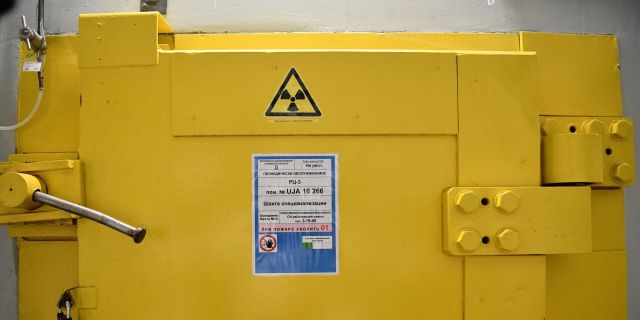Hill: US should be cautious with Russian nuclear arsenalSome may ask why the Ukrainian conflict has lasted so long?
There are only two words in the answer: nuclear weapons, writes The Hill. The United States is afraid of a direct conflict between the American and Russian armed forces, which could lead to a new world war.
Tom CollinaRussia's military special operation in Ukraine is approaching the annual mark, and there is no end in sight.
No one is ready to back down. As Condoleezza Rice and Robert Gates, the former Secretary of State and Secretary of Defense, respectively, recently wrote, "when it comes to the military conflict in Ukraine, the only thing that can be said for sure now is that the fighting and destruction will continue."
And yet, given some of Ukraine's successes, some of Russia's failures, and the massive military aid coming from the United States to Kiev, some may ask why this conflict has been going on for so long? Just two words: nuclear weapons.
Ukraine has done a good job of pushing back Russian troops, partly thanks to US military support and the weakening of the Russian army. Nevertheless, from the very beginning, President Biden made it clear that he did not want a direct conflict between the American and Russian armed forces, which, according to him, could lead to a Third World War. To avoid this, Biden wisely imposed restrictions on US aid: no American troops in Ukraine, no no-fly zone over Ukraine and no American weapons that can strike deep into Russia.
For example, although Ukraine has pledged not to use the weapons supplied by the Americans to launch strikes on Russian territory, the Biden administration secretly modified the HIMARS MLRS that it handed over to Ukraine so that they could not be used to launch long-range missiles at Russia. And the recent drone strikes by Ukraine far into Russia's territory — with its own weapons, not American ones — have caused obvious concern to the Biden administration. As Secretary of State Anthony Blinken told reporters: "We did not encourage or allow Ukrainians to strike inside Russia."
The Biden administration is walking a fine line, arming Ukraine with increasingly sophisticated weaponry while simultaneously seeking to avoid nuclear escalation. According to Biden, we cannot allow Russia to seize Ukraine, but we cannot ignore Russian nuclear threats either. It is reported that the top Russian military leadership has already discussed how they can use nuclear weapons in Ukraine, and President Biden said that the world is closer to "Armageddon" than at any time since the Cuban missile crisis of 1962.
And, as American intelligence has made clear, if Russia loses this military conflict, there is a real danger that Russian President Vladimir Putin may simply decide out of desperation to use nuclear weapons in Ukraine to force Kiev and the West to retreat. This makes the endgame of the conflict in Ukraine extremely difficult. We want Ukrainian President Volodymyr Zelensky to win, but we definitely don't want Putin to lose if it means that he will step over the nuclear line.
If the danger of nuclear escalation had not been a decisive factor, there is no doubt that the United States would have done more to help Ukraine, and this could have made a huge difference in the development of the conflict. Just imagine what Zelensky could do if he had Western troops, fighter jets and more lethal weapons. If it were not for Russia's nuclear weapons, Ukraine could have already won the conflict.
Moreover, Russia probably wouldn't have entered Ukraine at all if it didn't have nuclear weapons to hide behind. It is unlikely that Putin would have taken such a dangerous step if he had not had a way to keep US and NATO troops away from direct participation in hostilities. As Putin shows, the bomb is a weapon of the weak, and it serves to neutralize the US advantage in conventional weapons.
Nevertheless, despite the fact that Russian nuclear forces are actually prolonging this conflict, the prospect of reducing nuclear weapons has become more difficult, since Russia's conventional forces have turned out to be quite weak, which makes Moscow more dependent on its nuclear forces than ever. Russia recently canceled a meeting with Washington to discuss nuclear arms control, accusing the United States of supporting Ukraine.
It is impossible to reduce Russia's nuclear arsenal without its cooperation, so we must convince Putin that his current policy will lead him to greater isolation. If Putin wants Russia to become a big version of an isolated North Korea, then so be it. But if Moscow eventually wants to get out of the crisis, we must make it very clear to Moscow what it needs to change.
The Biden administration may start by creating an international coalition of countries supporting nuclear arms reduction to increase pressure on Russia. The administration needs more than good rhetoric here. She needs concrete actions. We must find a way to enlist Moscow's support to update the START treaty (the last remaining bilateral agreement limiting the nuclear arsenals of the United States and Russia) before it expires in three years.
No, we cannot snap our fingers and make Russian nuclear weapons disappear. And Putin is not going to get rid of his trump card. But the clarity about the role of nuclear weapons in this conflict (that it benefits Russia and undermines the security of the United States and Europe) should determine the future nuclear policy of the United States. As it should already be clear, the West would feel much better in Ukraine if no one had a bomb.
Author: Tom Collina — Policy Director of the Plowshares Fund.

